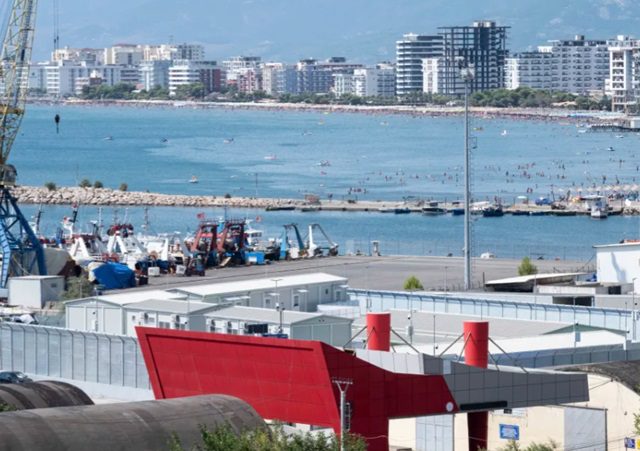BTN News: Italy is trying a new way to manage the many migrants trying to reach its shores by sea. Starting next month, rescued migrants will be sent to Albania where their asylum applications will be processed. This plan is part of a five-year agreement between Italian Prime Minister Giorgia Meloni and Albanian Prime Minister Edi Rama. Under this deal, Albania will host thousands of asylum seekers on behalf of Italy.
In June, during a visit to Albania, Meloni said that two centers for migrants would be ready by August 1 to receive the first 1,000 migrants. However, on the day before this deadline, construction was still happening at one of the centers. This raised doubts about whether they would be ready on time. Neither Italy nor Albania has confirmed when the first migrants will actually arrive.
The agreement allows up to 3,000 migrants to be sent to Albania each month. These migrants will be intercepted by the Italian Coast Guard in international waters. They will be screened on the rescue boats before being transferred to Albania for further processing. Only adult men will be housed in these centers, according to Italian ambassador Fabrizio Bucci. Vulnerable people such as women, children, the elderly, the sick, and victims of torture will stay in Italy. Families will not be separated either.
Migrants sent to Albania will still have the right to apply for asylum in Italy. Their cases will be processed under Italian and EU laws. Processing each case is expected to take about a month. This means up to 36,000 people could be sent to Albania each year. Those granted asylum will be relocated to Italy. Those denied asylum will be deported directly from Albania.
European Commission President Ursula von der Leyen supports this project. She called it an example of “creative thinking” for dealing with immigration in the EU. However, human rights organizations have criticized the plan. They fear it sets a bad example. The International Rescue Committee (IRC) strongly opposes the plan. They believe it is risky and have urged the EU not to use this model for their asylum and migration strategies. The IRC described the plan as “costly, cruel, and counterproductive.”
This is not the first time a country has tried to outsource asylum processing. Recently, British Prime Minister Keir Starmer canceled a previous government plan to send some migrants to Rwanda. The new UK Home Secretary, Yvette Cooper, criticized the £700 million plan as a huge waste of taxpayer money.
Italy’s plan with Albania will cost €670 million over five years. Italy will manage the facilities entirely, and they will be under Italian jurisdiction. Albanian guards will provide security outside the centers. The two centers are located in the port of Shengjin on Albania’s Adriatic coast and near the old military airfield in Gjader, about 24 kilometers east. While the Shengjin center has been ready for over a month, the Gjader site is still under construction. A lot of work remains to be done.
Ambassador Bucci said delays at Gjader were due to unstable ground conditions and a recent heatwave. The heat forced work to stop during the hottest hours. He emphasized the importance of ensuring the safety of workers and future migrants.
Despite the controversy, local residents in Gjader support the migrant center. They appreciate the economic boost it brings to the area. With limited job opportunities, many locals have emigrated to other European countries over the past 30 years. Some residents, like 70-year-old Bib Lazri, empathize with the incoming migrants. They see the center as a way to help those in need, regardless of their background.
The project has also helped the local economy. Mayor Sander Preka noted increased business activity. His own shop saw a 30% sales boost in the past month. Residents have rented out homes to employees of the migrant center, and others have found jobs there.
In Shengjin, the 4,000-square-meter facility is secured by a high fence topped with barbed wire. It has strict security measures. Journalists were not allowed access, but it is clear the center is ready to receive migrants.
Meloni and her conservative allies have long argued for greater burden-sharing among European countries in managing migration. She has presented the agreement with Albania as an innovative solution to a persistent EU problem. As this initiative unfolds, it remains to be seen how it will influence future migration policies within Europe.


